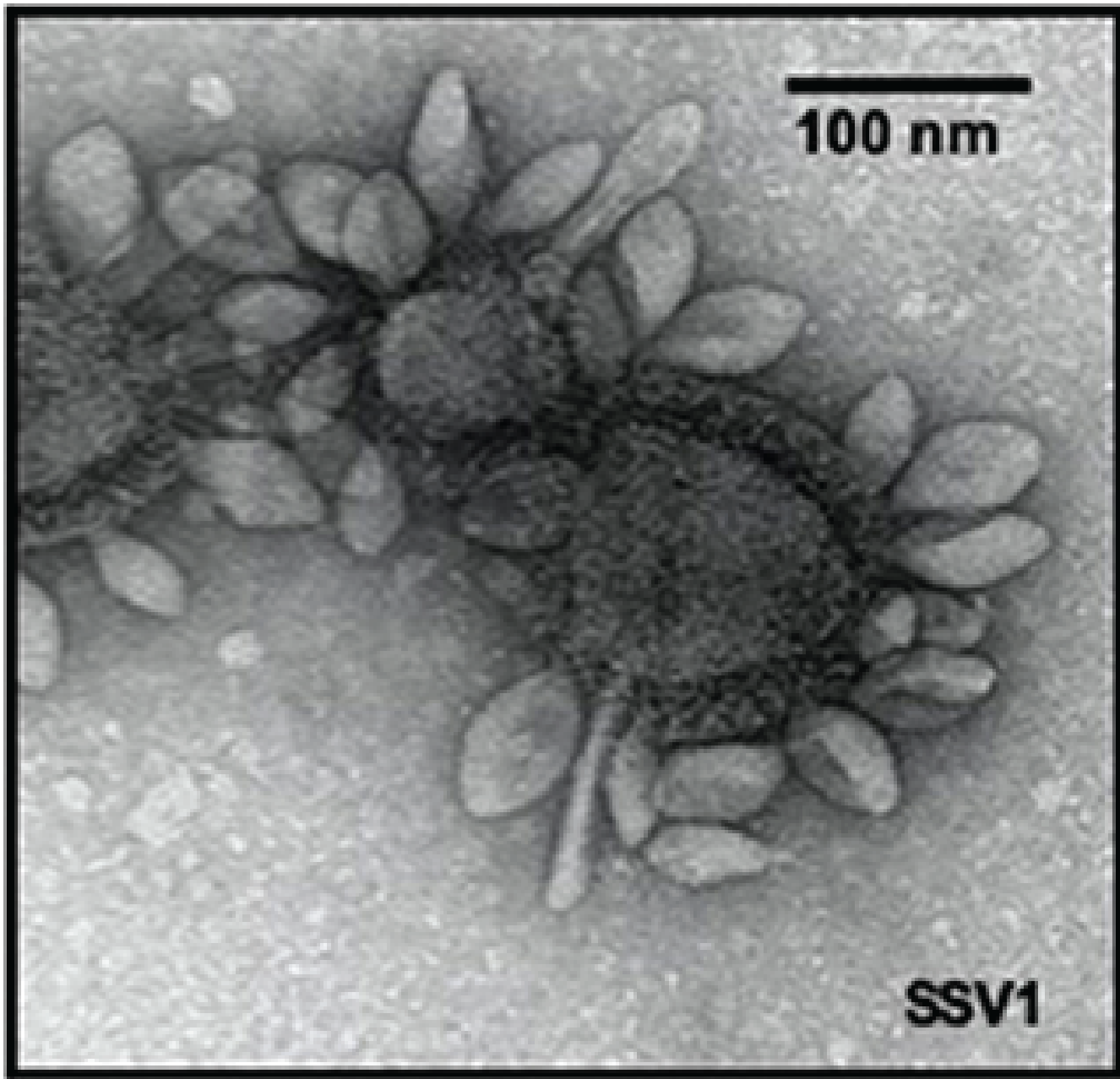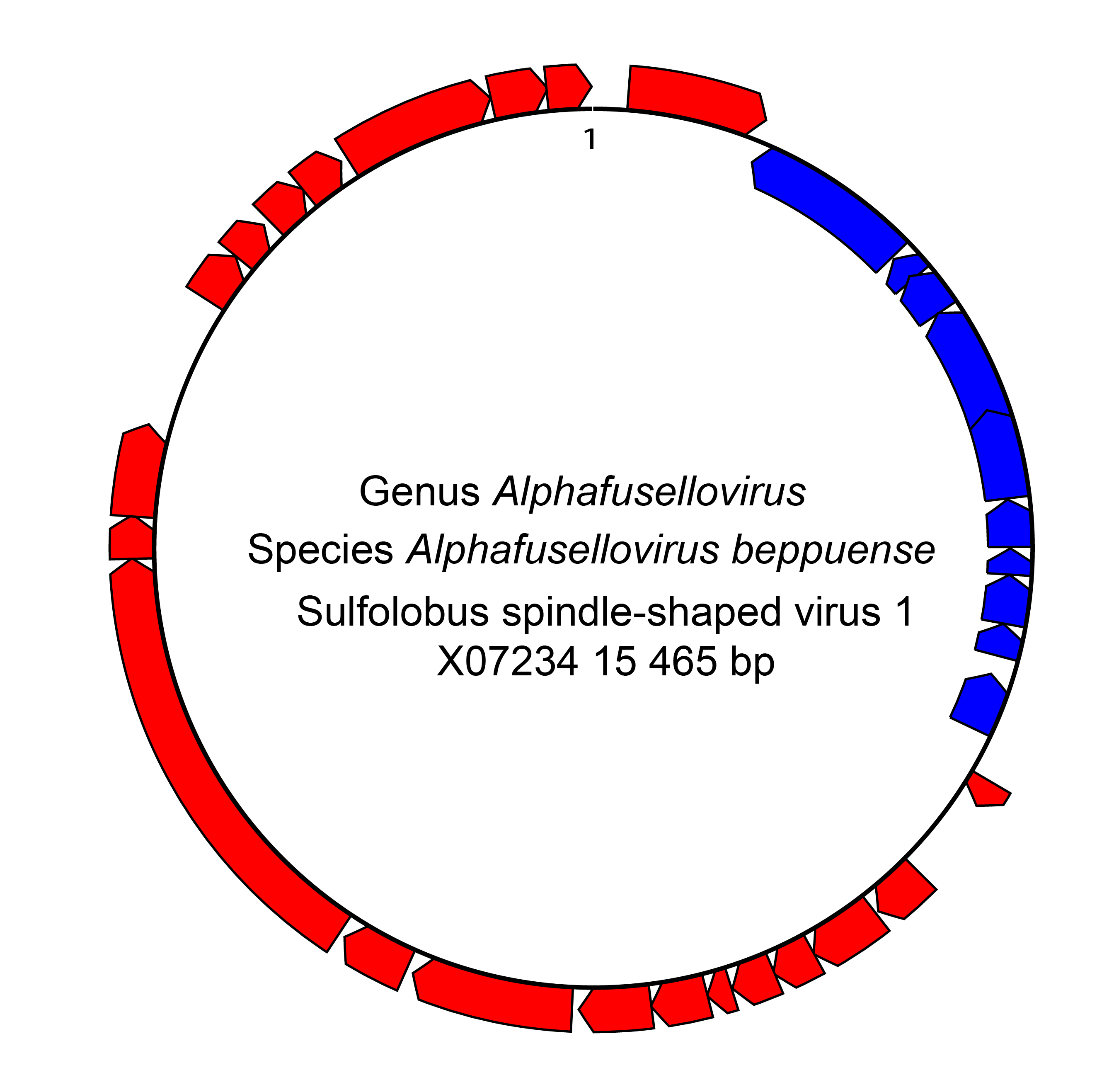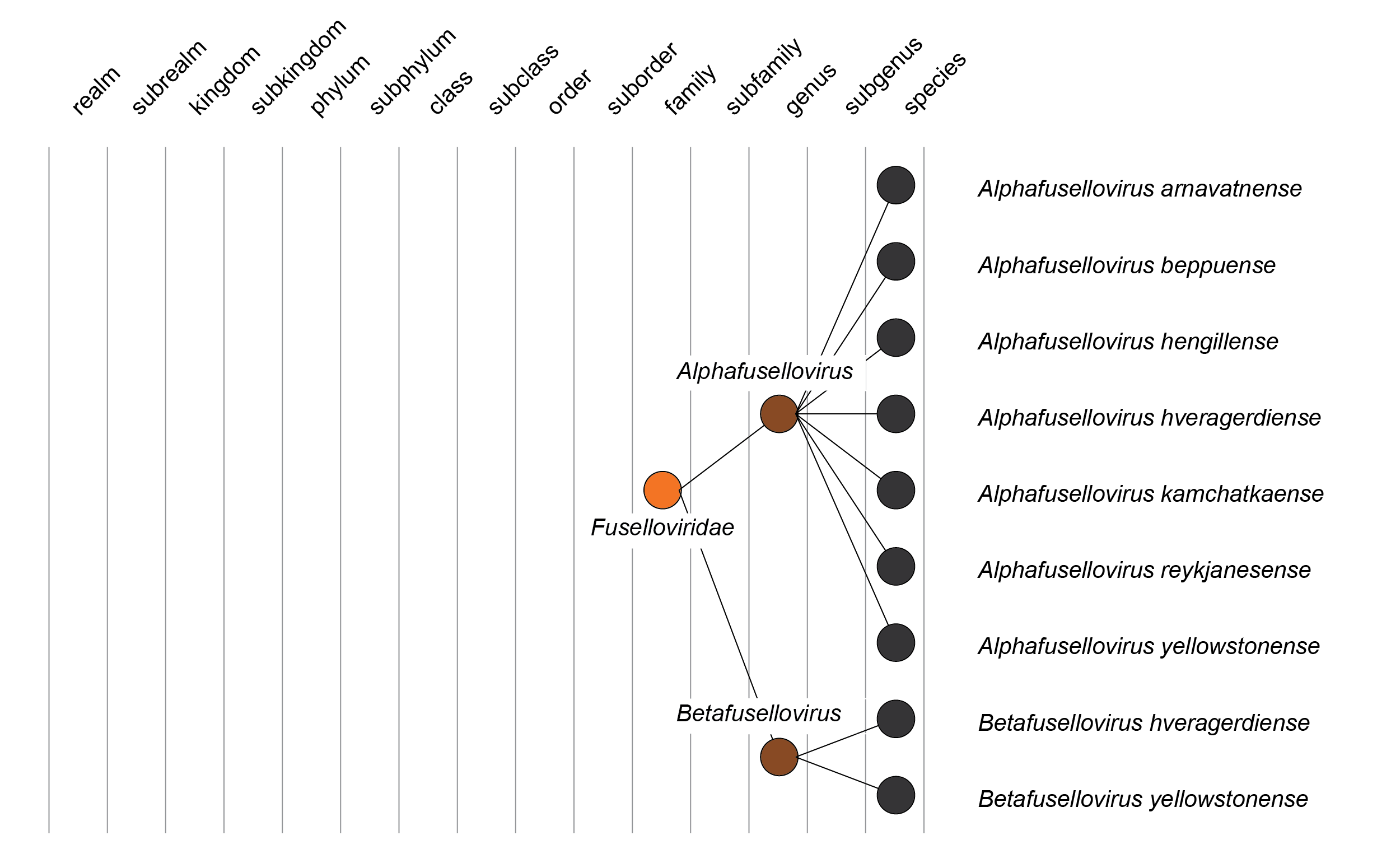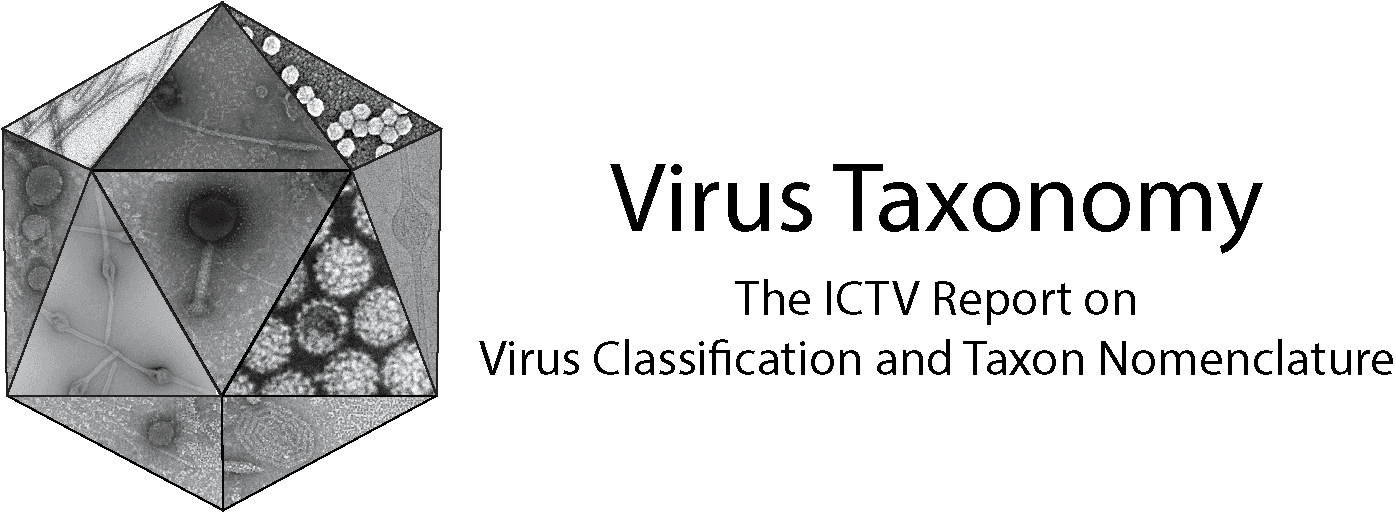Family: Fuselloviridae (Interim Report)
This is a summary page created by the ICTV Report Editors using information from associated Taxonomic Proposals and the Master Species List.
Edited by: Mart Krupovic
Posted: July 2023, updated December 2024
Summary
The family Fuselloviridae includes viruses with spindle-shaped virions and circular dsDNA genomes. Members of the family Fuselloviridae are temperate viruses infecting hyperthermophilic archaea of the order Sulfolobales (Table 1 Fuselloviridae). The family was established in 1990 as SSV-1 family, being renamed Fuselloviridae in 1993.
Table 1 Fuselloviridae. Characteristics of members of the family Fuselloviridae.
| Characteristic | Description |
| Example | Sulfolobus spindle-shaped virus 1 (X07234), species Alphafusellovirus beppuense, genus Alphafusellovirus |
| Virion | Members of the genus Alphafusellovirus have lemon-shaped virions, about 90 × 50 nm in diameter, whereas viruses of the genus Betafusellovirus have elongated, cigar-shaped virions. One pole of the virion contains short terminal fibres. Lipids are present but the virions are not enveloped (Figure 1 Fuselloviridae). |
| Genome | Circular, double-stranded DNA genomes of 14.8 to 17.8 kbp (Figure 2 Fuselloviridae). |
| Host range | Hyperthermophilic archaea of the order Sulfolobales |
| Taxonomy | 2 genera and 9 species (Figure 3 Fuselloviridae) |
 |
| Figure 1 Fuselloviridae. Transmission electron micrograph of SSV1 particles (image is part of Figure 1 from Ceballos et al., (2020) Host-dependent differences in replication strategy of the Sulfolobus spindle-shaped virus strain SSV9 (a.k.a., SSVK1): infection profiles in hosts of the family Sulfolobaceae. Front Microbiol. 11:1218, used under a Creative Commons Attribution 4.0 International License). |
 |
| Figure 2 Fuselloviridae. Genome organisation of Sulfolobus spindle-shaped virus 1, a member of the family Fuselloviridae. Boxes indicate open reading frames as annotated on GenBank accession X07234. The annotation of this accession is incomplete – refer to (Iverson et al., 2017) for a more complete genome diagram. |
 |
| Figure 3 Fuselloviridae. Taxonomy of the family Fuselloviridae. |
Derivation of name
Fuselloviridae: from fusillo, latin for little spindle
Reference
Iverson, E. A., D. A. Goodman, M. E. Gorchels and K. M. Stedman (2017). Extreme mutation tolerance: nearly half of the archaeal fusellovirus Sulfolobus spindle-shaped virus 1 genes are not required for virus function, including the minor capsid protein gene vp3. J Virol 91: e02406-16. [PMID 28148789]

